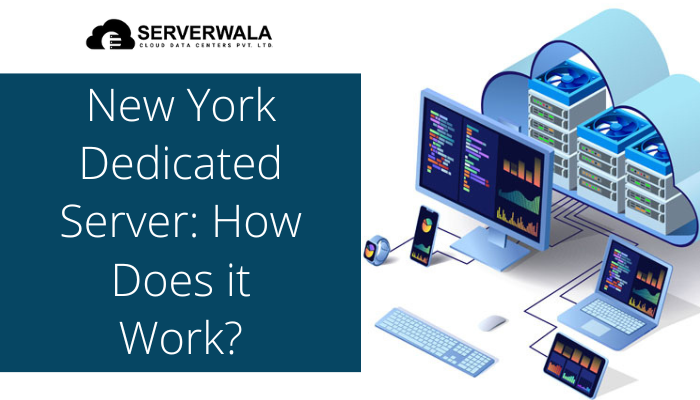In the ever-evolving landscape of cryptocurrencies, the importance of secure and reliable cryptocurrency wallets cannot be overstated. As we step into the year 2024, the market is flooded with a myriad of crypto wallet development services to various needs and preferences. In this comprehensive guide, we will explore the ten best cryptocurrency wallets that stand out in terms of security, user-friendliness, features, and overall performance.
Understanding Cryptocurrency Wallets
A cryptocurrency wallet is a digital tool that enables users to store, manage, and interact with their digital assets securely. Contrary to traditional wallets that hold physical currency, cryptocurrency wallets store private keys – cryptographic keys that grant access to the user’s funds on the blockchain. These wallets come in various forms, each offering a distinct set of features and catering to different preferences and security considerations.
Types of Cryptocurrency Wallets
Hardware Wallets
These physical devices store private keys offline, providing enhanced security by isolating the keys from potential online threats.
Software Wallets
These wallets exist as applications on electronic devices, including desktops, laptops, and mobile phones. They can be further categorized into online (hot wallets) and offline (cold wallets).
- Online Wallets: Connected to the internet, these wallets offer convenience but may be susceptible to online threats. Popular examples are: Coinbase Wallet and Trust Wallet.
- Offline Wallets: Operating without a constant internet connection, these wallets prioritize security. Electrum and MyEtherWallet (MEW) are notable examples.
Mobile Wallets
Designed specifically for smartphones, mobile wallets provide users with on-the-go access to their digital assets. Trust Wallet and Edge Wallet are popular choices in this category.
Web Wallets
These wallets operate through a web browser and are accessible from any device with internet connectivity. Guarda Wallet is an example of a versatile web wallet.
Features of Cryptocurrency Wallets
When evaluating the best cryptocurrency wallets, certain features distinguish exceptional options from the rest. Here are key features to consider:
Security Protocols
- Two-Factor Authentication (2FA): An additional layer of security that requires users to provide two forms of identification before accessing their wallets.
- Biometric Authentication: The use of fingerprint or facial recognition technology for secure access.
User-Friendly Interface
- An intuitive design and seamless user experience contribute to the accessibility and usability of a cryptocurrency wallet.
Multi-Currency Support
- The ability to store and manage a diverse range of cryptocurrencies within a single wallet, offering flexibility to users with varied portfolios.
Backup and Recovery Options
- Robust backup mechanisms, such as mnemonic phrases or seed phrases, ensure users can recover their funds in case of device loss or failure.
Integration with Hardware Wallets
- Support for hardware wallet integration enhances security by keeping private keys offline while allowing users to manage and monitor their assets through a user-friendly interface.
Built-In Exchange Functionality
- Wallets with integrated crypto exchange software development platforms enable users to trade cryptocurrencies directly within the wallet, eliminating the need for third-party exchanges.
Staking and Passive Income Opportunities
- Some wallets offer staking features, allowing users to participate in blockchain networks and earn passive income by holding and supporting certain cryptocurrencies.
Compatibility with Decentralized Finance (DeFi) Applications
- Integration with DeFi applications enables users to participate in decentralized lending, borrowing, and trading directly from their wallets.
The 10 Best Cryptocurrency Wallets in 2024
Ledger Nano X
The Ledger Nano X continues to be a stalwart in the world of hardware wallets. With its sleek design and advanced security features, the Nano X supports a wide array of cryptocurrencies, making it an ideal choice for users with diverse portfolios. Its Bluetooth connectivity enhances user experience, allowing for easy access to funds while maintaining top-notch security through its secure element.
Trezor Model T
Trezor Model T is another hardware wallet that has maintained its reputation for security and reliability. With its large color touchscreen, intuitive interface, and support for various cryptocurrencies, the Model T is an excellent choice for both beginners and experienced users. The device also supports password management, adding an extra layer of security to user accounts.
Exodus Wallet
For those seeking a user-friendly software wallet with a sleek design, Exodus Wallet stands out. Known for its intuitive interface and compatibility with various cryptocurrencies, Exodus Wallet allows users to manage their assets effortlessly. The built-in exchange feature adds extra convenience, enabling users to trade within the wallet without the need for third-party platforms.
Electrum
Electrum is a popular software wallet known for its speed and efficiency. As a lightweight wallet, it doesn’t require users to download the entire blockchain, making it a preferred choice for users with limited storage capacity. Its focus on simplicity doesn’t compromise security, as users can set up hardware wallet integration for enhanced protection.
Coinbase Wallet
Coinbase is a well-established name in the cryptocurrency space, and its wallet offering is no exception. Coinbase Wallet provides a seamless and secure way to store a variety of cryptocurrencies. With features like decentralized identity and integration with decentralized finance (DeFi) apps, it caters to users looking for an all-in-one solution.
MyEtherWallet (MEW)
For Ethereum and ERC-20 token enthusiasts, MyEtherWallet (MEW) remains a go-to choice. MEW is a user-friendly, open-source wallet that allows users to have full control over their private keys. Its compatibility with hardware wallets like Ledger and Trezor adds an extra layer of security, making it a favorite among Ethereum users.
Atomic Wallet
Atomic Wallet is a multi-currency wallet known for its emphasis on privacy and decentralization. With built-in atomic swaps, users can exchange cryptocurrencies without the need for a third party. The wallet also provides staking options, allowing users to earn passive income on supported assets.
Trust Wallet
Trust Wallet gained popularity as a mobile wallet with a strong focus on security. Acquired by Binance, Trust Wallet supports a wide range of cryptocurrencies and allows users to stake certain assets. Its intuitive interface and compatibility with decentralized exchanges (DEXs) make it a preferred choice for mobile users.
Guarda Wallet
Guarda Wallet is a versatile multicurrency wallet available on various platforms, including desktop, web, and mobile. Known for its user-friendly interface and strong emphasis on security, Guarda Wallet supports a vast number of cryptocurrencies. It also allows users to buy, exchange, and stake certain assets directly from the wallet.
Edge Wallet
Closing our list is Edge Wallet, a mobile wallet that prioritizes both security and user control. Edge Wallet stands out for its user-friendly interface and unique two-factor authentication (2FA) approach, giving users more control over their account security. It supports various cryptocurrencies and provides users with the ability to buy and sell directly from the wallet.
The Scope of Cryptocurrency Wallets in 2024
Security Concerns and Innovations
Wallet developers continuously innovate to address potential vulnerabilities and protect users’ assets. Hardware wallets, with their offline storage and advanced security features, continue to be a preferred choice for those prioritizing the utmost security.
The implementation of biometric authentication and advanced encryption algorithms further fortifies the security infrastructure of wallets. Two-factor authentication has become a standard practice, adding an extra layer of protection against unauthorized access.
Evolving User Expectations
User expectations have evolved beyond mere storage capabilities. Modern cryptocurrency wallets are expected to provide a seamless and engaging user experience. Wallets like Exodus and Trust Wallet are at the forefront, offering visually appealing interfaces and intuitive designs that cater to both beginners and experienced users.
The demand for multi-currency support has also intensified. With the proliferation of diverse cryptocurrencies, users seek wallets that can accommodate their expanding portfolios. Wallets like Ledger Nano X and Coinbase Wallet, which support a wide array of digital assets, are well-positioned to meet this demand.
Integration with DeFi and the Rise of Web3
The integration of wallets with decentralized finance (DeFi) applications has become a defining trend. Users now expect their wallets to serve as gateways to the burgeoning world of decentralized finance, enabling them to seamlessly interact with lending platforms, decentralized exchanges, and other DeFi services. Coinbase Wallet, with its decentralized identity and DeFi integration, exemplifies this trend.
Moreover, the concept of Web3, where users have more control over their data and interactions in the digital space, is influencing wallet development. Wallets that align with the principles of decentralization and user empowerment, such as Atomic Wallet and MyEtherWallet (MEW), resonate with the ethos of Web3.
The Role of Mobile Wallets
As smartphone penetration continues to rise globally, mobile wallets are playing a pivotal role in bringing financial inclusion to the masses. Trust Wallet and Edge Wallet, designed for mobile devices, provide users with the flexibility to manage their digital assets on the go. The user-friendly interfaces of these wallets contribute to lowering barriers to entry for individuals seeking to enter the cryptocurrency space.
Conclusion
As we navigate the complex and dynamic world of cryptocurrencies in 2024, selecting the right wallet is crucial for safeguarding digital assets. The wallets mentioned in this guide cater to different needs, whether it’s security, user-friendliness, or feature diversity. It’s important for users to assess their priorities and choose a wallet that aligns with their preferences and requirements. Additionally, staying informed about updates and new developments in the cryptocurrency space will contribute to a more secure and rewarding experience in managing digital assets.



